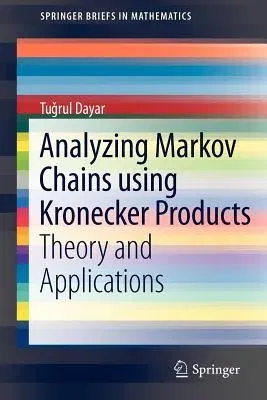Tugrul Dayar
(Author)Analyzing Markov Chains Using Kronecker Products: Theory and Applications (2013)Paperback - 2013, 24 July 2012

Qty
1
Turbo
Ships in 2 - 3 days
In Stock
Free Delivery
Cash on Delivery
15 Days
Free Returns
Secure Checkout
Part of Series
Springerbriefs in Mathematics
Print Length
86 pages
Language
English
Publisher
Springer
Date Published
24 Jul 2012
ISBN-10
1461441897
ISBN-13
9781461441892
Description
Product Details
Author:
Book Edition:
2013
Book Format:
Paperback
Country of Origin:
NL
Date Published:
24 July 2012
Dimensions:
23.39 x
15.6 x
0.51 cm
Genre:
Science/Technology Aspects
ISBN-10:
1461441897
ISBN-13:
9781461441892
Language:
English
Location:
New York, NY
Pages:
86
Publisher:
Weight:
149.69 gm

